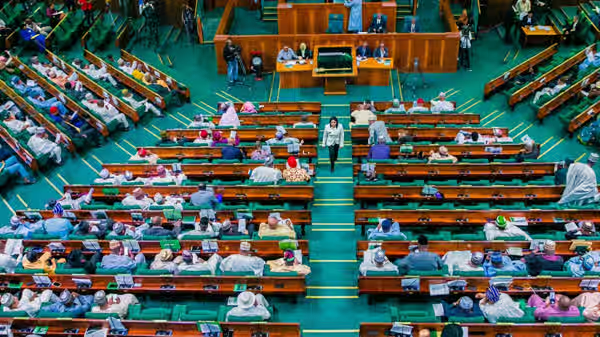Nigeria’s film industry is set to enter a new phase of innovation following the signing of a Memorandum of Understanding (MoU) between the Nigerian Film Corporation (NFC) and PlotWeaver, an AI-powered storytelling technology platform.
In a statement issued on Monday in Abuja , the NFC described the partnership as one that “is strategic, timely, innovative and will transform the storytelling capabilities” of Nigerian filmmakers, marking what it called a significant milestone for the country’s growing cinema industry.
According to the statement, the collaboration aligns with the Federal Government’s drive to strengthen the creative sector and deepen the use of technology in film production.
Brian Etuk, Director of Public Affairs at the NFC, said the partnership offers PlotWeaver an opportunity to support the government’s vision and the corporation’s ongoing commitment to industry development through innovation.
Etuk explained that the initiative would introduce AI-powered storytelling tools to enhance film development processes nationwide.
These tools, he said, would be deployed across Nigeria’s six geopolitical zones and made accessible to filmmakers, students of creative studies, emerging talents, and film training institutions.
The Managing Director and Chief Executive of the NFC, Dr. Ali Nuhu, described the partnership as timely and transformative for the industry.
“This partnership marks a pivotal shift towards a future where cultural storytelling meets cutting-edge technology,” he said.
He added that “this is not just about a software, it is about sovereignty in storytelling and equipping creatives with the power to tell their stories with accuracy, dignity, that resonate beyond Nigeria’s borders.”
Also quoted in the statement, Founder and Chief Executive of PlotWeaver, Mr. Oluwole Fagbohun, expressed confidence in the project’s delivery timeline.
He assured that key components of the initiative, including stakeholder buy-in, domestic and international implementation frameworks, funding campaigns, platform deployment, training, and capacity building, would be executed over the next three years.
Fagbohun noted that PlotWeaver’s rollout plan, to be announced soon, is designed to support filmmakers at various stages of production, including script development, character design, cultural intelligence, and market insights, while enhancing authentic creativity.
The partnership aims to embed AI-driven storytelling infrastructure within Nigeria’s cinema ecosystem, expand global visibility for Nigerian stories, unlock new investment opportunities, and promote the use of intelligent tools that advance local voices while respecting cultural identity.















